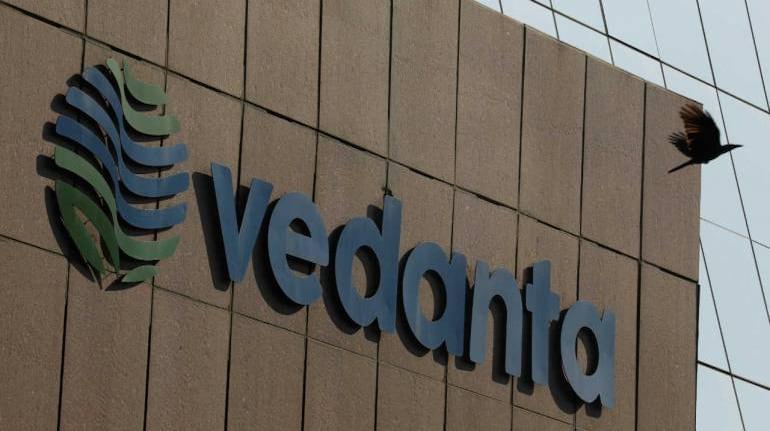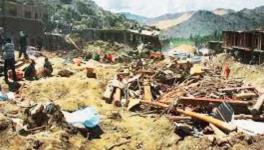Did Odisha Govt Rush Through a Public Hearing for Vedanta’s Aluminium Smelter Expansion?

Image Courtesy: Moneycontrol
New Delhi: The Odisha government held a controversial public hearing for Vedanta’s aluminium smelter expansion project in Jharsuguda district on September 30 amidst a series of dramatic events. The public hearing was held barely 10 minutes after the Odisha High Court issued an order modifying its earlier decision of an interim stay on the event, as per sources.
The government’s haste to hold the public hearing has raised questions even as the project in the mineral-rich area is facing opposition from locals and the state’s main opposition party, the Bharatiya Janata Party (BJP), has also raised environmental concerns.
The project in Jharsuguda pertains to the proposed expansion of Vedanta’s 1.6 million tons per annum (MTPA) aluminium smelter plant – which is powered by a 1,215-megawatt (MW) coal-based captive power plant – to the capacity of 1.8 MTPA.
The Odisha State Pollution Control Board had issued a notice on August 27 that a public hearing would be held for all stakeholders of the project on September 30.
However, locals from the project-affected area demanded for postponement of the public hearing due to fears of the spread of Covid-19.
Array of court orders
After receiving no response to their demand, which the locals raised with the state pollution control board and the district administration of Jharsuguda through applications filed on September 21, they filed a writ petition in the Odisha High Court.
The writ petition was filed by Subrat Bhoi and Tejraj Kumura, both residents of Brundamal village, which falls within the project-affected area.
“The Special Relief Commissioner of the government of Odisha had issued a notification on August 31 prohibiting gathering of large numbers of people in the light of the Covid-19 pandemic. The Union Environment Ministry had also issued an office memorandum on September 14 allowing public hearings but with a maximum number of 100 participants. In view of the guidelines of the Special Relief Commissioner, it was not possible to hold a public hearing on September 30, in which residents of five project-affected revenue villages were to participate,” said the counsel for the petitioners, Prafulla Kumar Rath.
On September 28, a Public Interest Litigation (PIL) filed earlier by the NGO Anchalik Parivesh Surakhya Sangh demanding postponement of the public hearing had been dismissed by a division bench of the high court. Interestingly, Covid-19 guidelines issued by Odisha’s Special Relief Commissioner had never been brought up for discussion during the course of the hearing of the PIL.
Nevertheless, on September 29, a single-judge bench of the high court, chaired by Justice KR Mohapatra, took cognisance of the petition of Bhoi and Kumura. The bench imposed an interim stay order on the public hearing.
“As an interim measure, it is directed that the public hearing pursuant to advertisement dated 27.08.2020 issued by the State Pollution Control Board, Odisha, scheduled to be held on 30.09.2020 at 11.00 A.M. at Government U.P. School, Dalki, Kurebaga in the district of Jharsuguda shall not be held till next date,” ruled Justice Mohapatra.
But barely a few hours later, this interim stay order was lifted.
Vedanta appealed before the division bench, which had disposed of the PIL by Anchalik Parivesh Surakhya Sangh, to recall the interim order of the single-judge bench.
On 30 September, Justice Mohapatra issued a modified order, which permitted the public hearing to be conducted as per schedule while allowing the aggrieved locals to participate in the event.
“ … stalling the public hearing, more particularly when all arrangements in compliance of the aforesaid Office Memorandum dated 14.09.2020 has been made, will be prejudicial to opposite party No.4 [Vedanta] in particular as well as the public at large who have come ready all the way to participate in the public hearing,” stated the modified order of September 30.
A Rushed Hearing and Aggrieved Locals
As per sources in the Odisha government, the public hearing was held at 3:30 pm on September 30, barely 10 minutes after the modified order was issued! This, despite the fact that word had allegedly spread throughout the district already on the basis of the earlier order of September 29--that the public hearing had been stayed.
Locals have alleged that the public hearing took place only with the participation of 90 people, from amongst a population of around 10,000 in the five villages. The argument that 90 people did not substantially represent the actual numbers of project-affected people was presented before Justice Mohapatra when he took up the case for final hearing.
In the judgement delivered on October 9, Justice Mohapatra stated that there was no material before the court to verify the attendance numbers in the public hearing. He left it upon the District Magistrate of Jharsuguda to decide upon the need, if any, to conduct another public hearing.
It would be pertinent to mention that the office memorandum on public hearings during Covid-19, which was issued by the Union Ministry of Environment, Forests & Climate Change on September 14, allows for staggered sessions when the total number of participants exceeds the ceiling of 100.
“The public hearing was conducted keeping in mind all guidelines issued for public gatherings in the light of the Covid-19 pandemic. The total number of participants was 221 while the number of written responses that we have received is 153,” the pollution control board’s regional officer for Jharsuguda, Hemendra Nath Nayak, told NewsClick.
The District Magistrate of Jharsuguda, Saroj Kumar Samal, said on Tuesday that he had indeed received a representation from the petitioners within the three-day time period set upon them by the high court.
“The fact will be examined, as has been contended by the petitioners in the court, that a total number of 90 villagers attended the public hearing. In compliance with the court’s order, it will be ascertained as to whether the proceedings of the public hearing were conducted properly. It will be examined as to what else the petitioners have to say about the consultation process, in due compliance with the directions of the high court,” said Samal.
Vedanta Dismisses Fly Ash Threat
In the final judgement on the writ petition issued on October 9, the high court had stated that representations of the petitioners did not throw any light on how they will be affected by the proposed expansion of Vedanta’s aluminium smelter plant.
However, serious allegations of air and water pollution from Vedanta’s aluminium smelter and its captive power plant had been reported by a fact-finding team of the BJP that conducted a field visit of Jharsuguda in the first week of September. The field visit was conducted barely a few days after the notice for the public hearing was issued.
The team submitted a memorandum of its findings to Odisha Chief Minister Naveen Pattnaik, amongst others, demanding a high-level enquiry into illegal dumping of fly ash by Vedanta.
“Fly ash had been dumped even behind the offices of the District Magistrate and the Superintendent of Police of Jharsuguda. Fly ash was also found to be dumped in forest lands, agricultural lands and near water bodies. Natural water sources have been contaminated with toxic slurry that forms with the mixing of fly ash and rainwater,” said Bargarh Lok Sabha MP, Suresh Pujari, who was also a member of the BJP fact-finding team.
Fly ash is a byproduct generated after the burning of coal in thermal power plants.
A spokesperson of the Vedanta confirmed that the expansion project has nothing to do with the existing 1,215 MW captive thermal power plant of the aluminium smelter and fears of additional fly ash generation were unfounded.
“Only the smelter is being expanded in the new project. All units of the 1,215-MW captive power plant are already fully operational. No expansion for the captive power plant has been sought. No additional land is being acquired for the expansion project either,” he told NewsClick.
A breach in the embankment of one of the ash ponds of the aluminium smelter had taken place in August 2017 resulting in flooding of toxic slurry over a large area and contamination of a nearby river. “A set of mitigative measures had been directed by the National Green Tribunal, which were fully complied with. There has been no other incident of ash pond breaches ever since,” added the spokesperson.
Fresh Public Hearing
Nevertheless, locals as well as activists in Odisha have demanded a fresh public hearing because of the rushed manner in which the event was conducted on September 30. Noted Odisha-based activist Prafulla Samantara has written to the state government alleging irregularities in the manner the public hearing was conducted.
“When the state pollution control Board and Jharsuguda district administration knew that as per the September 29 high court order there was to be no public hearing on September 30, it is obvious that they were not supposed to prepare for the event on the scheduled date. So, how could they prepare to hold the public hearing within such a short span of time (allegedly 10 minutes) after the high court issued a modified order?,” asked Samantara. “The hearing, as per the original notice of the pollution control board, was scheduled at 11 am on September 30. When it had already been established that there was an order of the court not to hold the hearing on the scheduled date, how come some people were still present to attend the hearing that was held late in the afternoon?” Samantara told Newsclick.
During the course of the hearing of the case, the state pollution control board had stressed that it was only a conjecture that the date fixed for public hearing would frustrate the purpose of the event in the light of Covid-19 because more than 30 days had also been provided for submitting written responses.
“The environment ministry and regulatory institutions like the pollution control board are taking a technical approach to public hearings. These hearings are part of a consultative process, which needs to inform the appraisal and decisions on the project. The justification that responses can be given in writing, or curtailing its scope under the guise Covid-19 limits, defeats the purpose for which public hearings are conducted,” said Kanchi Kohli of Delhi-based think tank Centre for Policy Research. “Written responses are only one format for responses. Public hearings provide an opportunity for affected people to directly interact with EIA consultants, project authorities and the government. Rather than rushing through with public hearings, which has repeatedly caused discontent, the government needs to strength its format to make it more deliberative and inclusive,” she said.
The writer is an independent journalist.
Get the latest reports & analysis with people's perspective on Protests, movements & deep analytical videos, discussions of the current affairs in your Telegram app. Subscribe to NewsClick's Telegram channel & get Real-Time updates on stories, as they get published on our website.
























